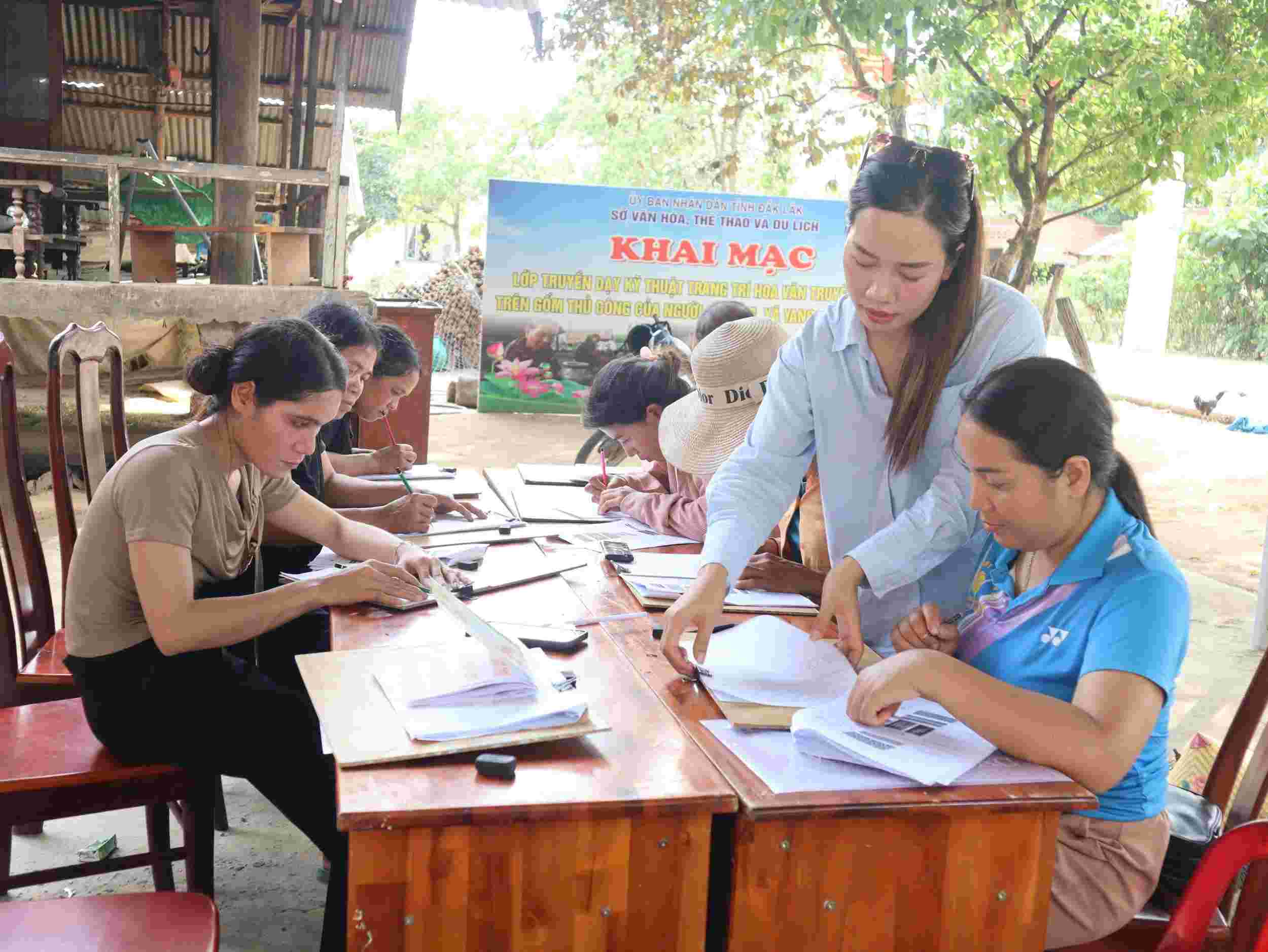National Intangible Cultural Heritage
At the end of 2024, the pottery making profession of the M' Nong people in Yang Tao commune, Lak district was recognized by the Ministry of Culture, Sports and Tourism as a national intangible cultural heritage.
This is an important milestone, opening up opportunities to preserve and develop traditional crafts and create a wider market for local handmade pottery products.
Although the pottery industry in Yang Tao has not brought in high income, for generations, the M' Nong people have still considered this the soul of the original culture.
According to the survey, no one remember where the M'ong pottery originated. The M'ong people here only know that it has existed for a long time, taking its roots in low-lying land with many streams and surrounded by the poetic Lak lake.
M' Nong ceramics are made entirely by hand, without the use of machines, rotors, molds or modern furnaces. The products all depend on the ingenuity of the hands and the creativity of the artisans.
Over time and historical changes, the pottery here still preserves the traditional production process, preserving all the original elements.

Preserving and promoting cultural values
In order to preserve and promote the traditional cultural values of the pottery profession, last May, the Department of Culture, Sports and Tourism organized a class to teach decorative patterns on pottery products to artisans and people of Yang Tao commune.
Attending the class are people who have been involved in the profession for a long time. Now they want to improve their skills and contribute to preserving the national cultural identity.
Artisan H Phiet Uong (74 years old), in Dong bak village, shared that before, she only made plain pottery and never knew the technique of pattern painting.
Despite her old age, it is not easy to acquire new knowledge, but Ms. H Phiet Uong is still a pioneer in registering to study. After a month of good guidance, she was able to paint animal patterns such as elephants, turtles, herbs and some natural motifs on ceramic products.
Ms. He Bkrong, in Yok Duon village, said that the class not only helps improve her skills but also helps her understand more deeply the meaning of each pattern and pattern - symbols with a strong soul and M' Nong identity.
Her family currently has an exhibition, introduction and experience in traditional pottery making. Thanks to the knowledge from the class, she is more confident in improving the quality of products serving tourists. Thereby, increasing family income.
H Niem Kuan (13 years old), the youngest student in the class, came to study with the desire to follow in his father's pottery career. Throughout the course, he always studies diligently and expresses his joy at learning more about his ethnic culture.
Ms. Duong Vy Ha - lecturer at Dak Lak College of Culture and Arts, who directly guides the class - assessed that pottery products after being brewed with traditional patterns become more lively and attractive.
The decorative motifs are images of animals, natural landscapes, and items familiar with the lives of the M'ong people, creating a sense of closeness and familiarity.
Ms. Duong Vy Ha believes that, with the skillful hands of artisans and the spirit of preserving the culture of the community, the M' Nong pottery industry will continue to develop, spreading the indigenous cultural values to domestic and foreign tourists.












